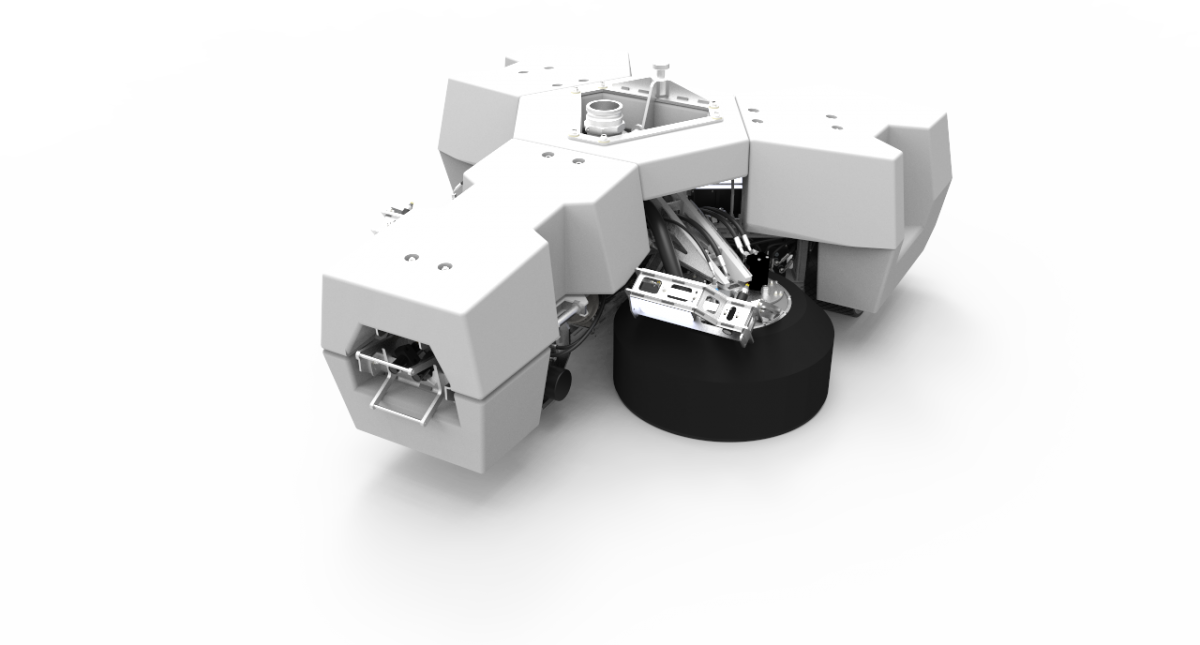MSc thesis project proposal
Internships Fleet Cleaner
Project outside the university
Fleet CleanerFleet Cleaner develops and deploys robots for ship hull cleaning. They are an innovative technical company based in Delft. With their unique robot they offer the most complete solution for ship hull cleanings on the market, available in all Dutch seaports. The Fleet Cleaner robot removes fouling from a ship’s hull, thereby increasing fuel efficiency dramatically and reducing fuel costs. The cleaning is performed during loading and unloading in port; resulting in no down-time for the vessel. The fouling that is removed from the vessel is captured and filtered by our state-of-the-art filtering system aboard our support vessel. This is the reason that Fleet Cleaner is one of only a few companies licensed to perform hull cleanings in Dutch ports.
Project 1:
During a cleaning operation the robot is controlled by a human operator who navigates on the hull of a ship. The operator is assisted by the Robot Tracking System (RTS), which uses plans of the ship and sensors on the robot to determine the current position and to record the previous path of the robot. These plans of the ship are always 2 dimensional, while 3 dimensional models do not exist or are not provided. However, to improve the accuracy of the RTS, Fleet Cleaner would like to extend the system to a 3D system using generic ship models that can be altered to the known dimensions of the ship.
Project 2:
During a cleaning operation the robot is remotely controlled by a human operator. Since a single cleaning operation can take up to 48 hours, the operator would greatly benefit from a semi-autonomous robot. The current robot has an autopilot to assist the operator, which is able to track a target depth on a 2D surface. This allows for a partially automated cleaning of the sides of a ship’s hull by cleaning horizontal ‘lanes’. However, Fleet Cleaner’s goal is to fully automate the cleaning process and the first step is a more autonomous autopilot.
Project 3:
Since the robot usually operates in turbid waters, camera vision is of irregular and poor quality. Therefore, for navigational purposes the robot relies heavily on a forward looking sonar (FLS). This device gathers information on objects and fouled areas on the ship’s hull and presents it to the human operator in the form of a sonar image. In a previous study, algorithms were developed for the detection of objects to assist the robot operator and to eventually make the robot autonomous. These objects, like the waterline, the bilge, bow thrusters and sea chests are detected by using handcrafted rules and algorithms. However, it is well-known that detecting objects directly from the data with deep learning algorithms, can result in a better performance. Fleet Cleaner is already using this technology on its underwater camera’s but we would like to extend this towards our sonar.
Assignment
Project 1:
- Simultaneous Localisation And Mapping based on sensor inputs.
- Determining/constructing a set of adaptable generic ship models with which most sea going vessels can be represented.
- Estimating or measuring the accuracy of the old 2D and new 3D RTS system.
Project 2:
- Path planning strategies for efficiently dividing the hull into workable areas.
- Investigation into state-of-the-art autopilots for comparable scenarios.
- Extending the current autopilot for use on 3D surfaces.
- Development and deployment of path planning algorithms for covering the ship’s hull (a confined, unknown 3D shape).
Project 3:
- Optimizing deep learning algorithms for use on sonar images.
- Detecting objects while using a limited amount of training data.
- Automatically detecting passable and non-passable regions in the image.
- Presenting the results of the algorithm to the operator in an intuitive way.
Requirements
We are looking for a talented and enthusiastic MSc student, preferably with a background in maritime engineering, control engineering, signal processing, computer vision, robotics or related engineering fields. We offer the following:- 3-12 months thesis assignment or internship at Fleet Cleaner (in Delft).
- Actual implementation and testing of your work in a real-world application.
- Working in an innovative company.
- Working together in a young, enthusiastic and multidisciplinary team.
- An appropriate internship allowance.
Contact
prof.dr.ir. Geert Leus
Signal Processing Systems Group
Department of Microelectronics
Last modified: 2019-07-09
